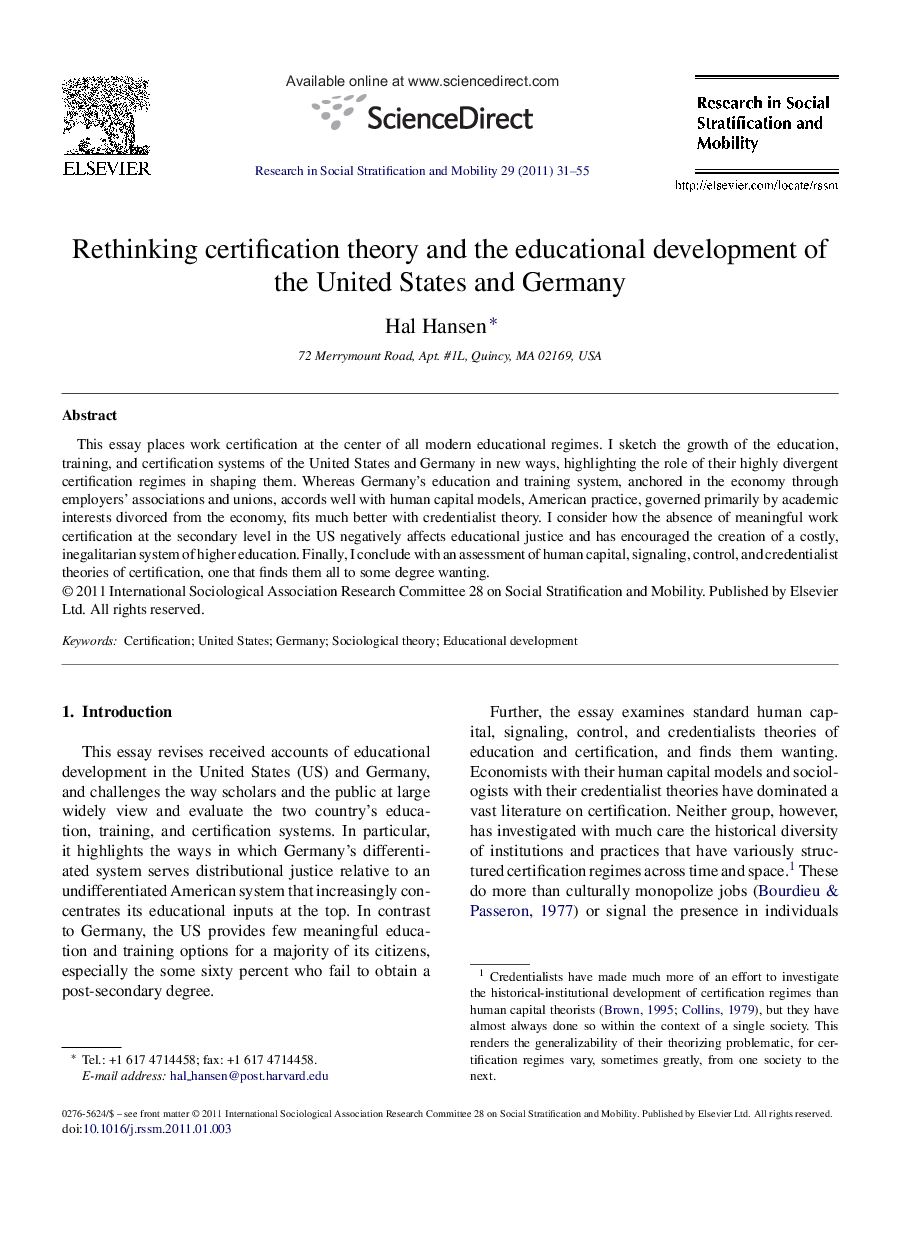| Article ID | Journal | Published Year | Pages | File Type |
|---|---|---|---|---|
| 998615 | Research in Social Stratification and Mobility | 2011 | 25 Pages |
This essay places work certification at the center of all modern educational regimes. I sketch the growth of the education, training, and certification systems of the United States and Germany in new ways, highlighting the role of their highly divergent certification regimes in shaping them. Whereas Germany's education and training system, anchored in the economy through employers’ associations and unions, accords well with human capital models, American practice, governed primarily by academic interests divorced from the economy, fits much better with credentialist theory. I consider how the absence of meaningful work certification at the secondary level in the US negatively affects educational justice and has encouraged the creation of a costly, inegalitarian system of higher education. Finally, I conclude with an assessment of human capital, signaling, control, and credentialist theories of certification, one that finds them all to some degree wanting.
